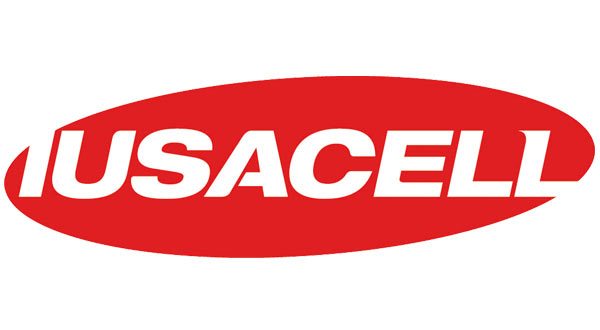The transformation of the Mexican telecom market has begun, following the passage of reform legislation. AT&T’s $2.5 billion acquisition of the Mexican operator Iusacell has breathed new life into the market. Although it will not reduce the market share of the dominant player América Móvil (AMX) immediately, AT&T is expected to change the telecom landscape in Mexico as a new financially stable player betting on this market.
Analysts told RCR Wireless News that they expect AT&T to expand and upgrade Iusacell’s wireless network.
“Initially, (we can expect) investment to accelerate the deployment of Iusacell’s LTE network,” said Jose F. Otero, director for Latin America & Caribbean at 4G Americas. “As mentioned in its press release, AT&T will seek to leverage the synergies of having a presence in the two most populous countries in North America.”
Frost & Sullivan ICT consultant Ignacio Perrone said this acquisition is one of the most relevant changes derived from the telecommunications reforms initiated by the Mexican government. “Clearly mobile is one of the hottest market segments, and AT&T’s entrance indicates an increase in competition in the near term. It is expected that this will, in turn, be reflected in better services and lower prices for Mexican mobile users,” he said.
The entrance of AT&T can be taken as a sign that Mexican telecoms are on their way to becoming more competitive. Although AMX and Telefónica will face increased competitive pressures, AMX is still considered a dominant player, and Carlos Slim’s company is expected to sell assets to shrink its market share, as required by the reform legislation.
“The leadership of América Móvil was built over many years and won’t dissolve overnight. But AT&T’s move represents a great boost as they are expected to invest in the country,” Ari Lopes, principal analyst at Ovum told RCR Wireless News. Lopes also noted that AT&T is in a unique position to attract Mexican customers who want to communicate with Hispanics living in the U.S. by providing a niche offering for them, since Iusacell and AT&T will be under the same holding.
Another factor is AT&T’s planned acquisition of the satellite television provider DirecTV for nearly $49 billion. DirecTV has operations in Mexico and across Latin America. The deal would give roughly 40% of Sky Mexico to AT&T. The move may result in combined offerings of Sky and Iusacell packages, but the acquisition has yet to be approved so it remains to be seen what potential change it would make on the Mexican telecommunications scene.
3Q for Telefónica and NII:
Telefónica reported a 10.9% decrease in total revenue in the first nine months of 2014, in comparison to 2013. However, looking only at 3Q14, organic revenue growth increased 2.8%. Net income was down 13% in the quarter year-over-year (YoY) and 9.4% for the period of nine months.
“In the third quarter of 2014, Telefónica’s transformation process made significant progress with the closing of the consolidation deal in Germany and the acquisition of GVT in Brazil (still subject to regulatory approvals),” said César Alierta, Telefónica’s executive chairman. “These transactions imply structural changes in the company’s competitive position in two key markets and strengthen, in both cases, our future growth potential. In parallel, our quarterly results showed an overall improvement in both operating and financial growth rates.”
NII Holdings lost 40,000 subscribers, ending the quarter with 9.1 million subscribers, a 5% decrease from a year ago. In its financial results, NII reported consolidated operating revenue of $927 million, a 15% decrease YoY and a net loss from continuing operations of $457 million. In a statement, Steve Shindler, NII Holdings’ CEO, said that the company ended the quarter with positive operational momentum as a result of a number of initiatives put in place earlier this year. “Unfortunately, these and other efforts to improve our operational performance were not sufficient to address our liquidity challenges over the long term, making it necessary for us to take steps to restructure our balance sheet by voluntarily seeking relief under Chapter 11 of the Bankruptcy Code in September,” he said.
More Latin American news:
Cuba — The State Telecommunications Company of Cuba (Etecsa) announced that it will allow Cubans to sign contracts for up to three mobile phone lines. Previously, Cubans were only allowed to have one line.
Brazil — The proposed antenna law passed the Chamber of Deputies and is now in the Senate. If approved, the law is expected to accelerate and simplify the process of installing radio base stations. Currently, there are nearly 300 different laws across Brazil regulating the installation of telecom antennas.
Uruguay — Due to the many different demands of the digital switchover, Uruguay’s telecom regulator has proposed delaying the end of the analog era to Dec. 31, 2015.
Bolivia — Tigo is planning to invest $80 million during 2015 to improve current services and create new ones.
Brazil — The country ended September with 19.43 million pay-TV subscribers and 23.7 million fixed broadband accesses.
Panama — Cable & Wireless will launch DTH services in the country.
Wondering what’s going on in Latin America? Why don’t you follow me on Twitter? Also check out all of RCR Wireless News’ Latin American content.


